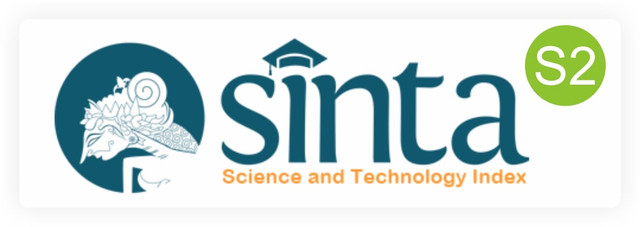PENAPISAN FITOKIMIA, PENETAPAN KADAR NAFTOKUINON TOTAL, DAN AKTIVITAS ANTIFUNGI FRAKSI TIDAK LARUT ETIL ASETAT EKSTRAK ETANOL DAUN PACAR KUKU (Lawsonia inermis L.) TERHADAP Candida albicans ATCC 10231
DOI:
https://doi.org/10.12928/pharmaciana.v5i2.2371Keywords:
Lawsonia inermis L., Candida albicans, microdilution, MIC, MFC, naphtoquinone contentAbstract
Candidiasis is an infection caused by Candida albicans. Synthetic treatment against Candida albicans has been developed, but reports of resistance to antifungal agents that there continue to emerge, and cause a lot of side effects. Pacar kuku (Lawsonia inermis L.) is one of the plants that has antifungal activity. Chemical content of polyphenols inhibit candidiasis is a form of naphthoquinone. This study aimed to test the antifungal activity of ethanolic extract of insoluble ethyl acetate fraction of pacar kuku leaves against Candida albicans. The ethanol extract was obtained from the ethyl acetate extraction of previously fractionated with ethyl acetate. Identification of chemical compounds made with phytochemical screening. Test antifungal activity against Candida albicans using microdilution method. Amphoterisin B infusion in doses 250 µg/ml with the concentration of 1,50 µg/ml, 0,75 µg/ml, 0,38 µg/ml, 0,19 µg/ml, 0,09 µg/ml, dan 0,05 µg/ml were used as standard solution. The parameters in this study are the Minimum Inhibitory Concentration (MIC) and Minimum Fungicidal Concentration (MFC). The concentration of the extract used in the MIC and MFC determination were 80%, 40%, 20%, 10%, 5%, 2,5% (w/v). Identification of chemical compounds was performed using test tubes and assay on anthraquinone compounds. The results showed that the MFC of the ethanol extract is 40% w/v. The MIC and MFC of amphoterisin B were 0,09 µg/ml and 0,19 µg/ml respectively. The test tubes showed that the ethanol extract contains polyphenols, saponins, and quinone. The naphtoquinone total content in the ethanol extract consecutively 7,97±0,14%.Downloads
Published
2015-11-30
Issue
Section
Biology Pharmacy
License
Authors who publish with Pharmaciana agree to the following terms:
- Authors retain copyright and grant the journal the right of first publication with the work simultaneously licensed under a Creative Commons Attribution License (CC BY-SA 4.0) that allows others to share the work with an acknowledgment of the work's authorship and initial publication in this journal.
- Authors are able to enter into separate, additional contractual arrangements for the non-exclusive distribution of the journal's published version of the work (e.g., post it to an institutional repository or publish it in a book), with an acknowledgment of its initial publication in this journal.
- Authors are permitted and encouraged to post their work online (e.g., in institutional repositories or on their website) prior to and during the submission process, as it can lead to productive exchanges, as well as earlier and greater citation of published work.


1.png)











